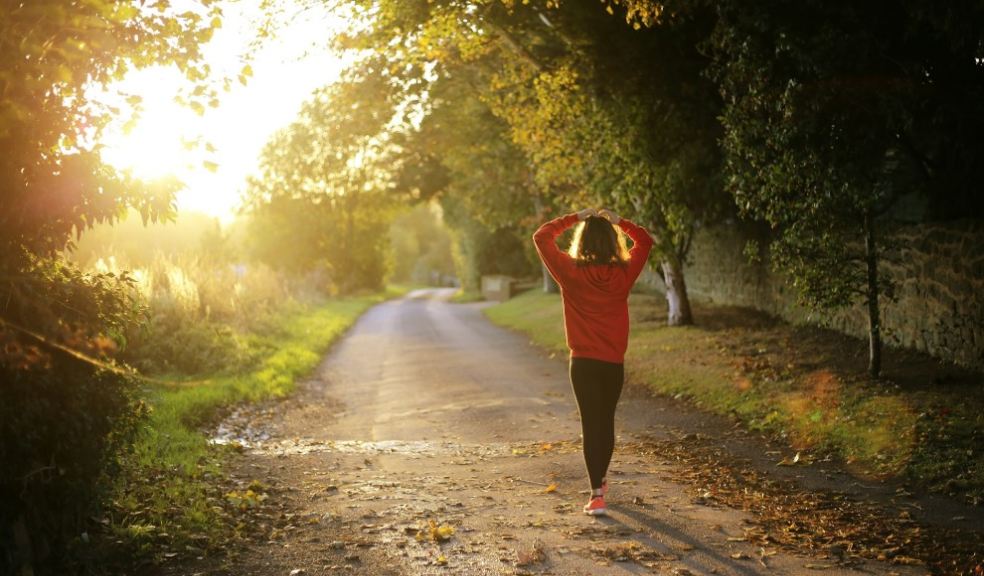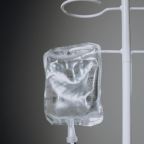
Experiencing Devon for People in Addiction Recovery
The effects of drug and alcohol addiction can affect us profoundly, whether you’re suffering from the disease directly or you’re witnessing a loved one struggling.
If you’re located in Devon or are heading to the area for a visit, here’s how you can maximise your experience while dealing with substance use disorder.
The Effects of Substance Use Addiction on the Mind and Body
The effects of drug and alcohol addiction are not only numerous but immeasurable.
Alcohol is both physically and psychologically addictive, making it even more difficult to overcome because of its combination of dangerous withdrawal symptoms.
People suffering from drug and alcohol addiction experience a range of physical and psychological symptoms, including but not limited to:
- Headaches
- Anxiety, depression & irritability
- Muscle cramps
- Vomiting & diarrhoea
- Insomnia
- Hallucinations
- Seizures
Because of these symptoms, we need to take into account how different environments and places can affect addicted or recovering people when visiting Devon.
While Devon is an ideal destination for someone who is in addiction recovery, it is still imperative that they seek professional help first, before sustaining their own recovery with more independence.
Some patients will be required to undergo a medical detox in order to safely recover before learning the necessary recovery steps.
Why Devon is a Great Destination for People in Recovery
Located in southwest England, Devon is an ideal destination for people who are in addiction recovery.
Devon’s natural scenery, abundance of outdoor activities, and slow pace of life offers fantastic opportunities to rest, recharge, and to separate yourself from pervasive relapse triggers present in bustling cities.
In addition to its natural formations and extensive range of sober activities to take part in, Devon is also home to many recovery support networks and wellness communities should you require the support.
While visitors can benefit immensely from many holistic activities on offer in Devon, they’ve also got support networks available in the area:
- Peaceful natural settings: countryside, coastlines, and moorlands.
- Slower pace of life – ideal for mindfulness and reflection.
- Presence of recovery support networks and wellness communities.
- Accessibility to alcohol-free and recovery-conscious venues.
Things to Do in Devon for People Recovering from Addiction
Due to Devon’s natural setting and heritage, experiencing Devon for people in addiction recovery doesn’t require a huge amount of changes from a traditional itinerary.
From benefitting from holistic activities and nature therapy to visiting local eateries and places of historical note, here are some of the best things to do in Devon for people recovering from drug and alcohol addiction.
Explore Nature and Outdoor Activities
With an abundance of open green spaces, Walking Festivals, and breathtaking sceneries, Devon is a nature-lover’s paradise.
The benefits of nature immersion should not be overlooked when recovering from substance addiction. Nature therapy, also known as ecotherapy, can include low-stress activities such as walking or hiking which provide a myriad of physical and mental benefits, including but not limited to:
- Reduced symptoms of anxiety and depressions: Spending time moving outdoors and in green spaces can greatly reduce levels of stress and anxiety. Exercising, whether indoors or outdoors, and spending time in nature can not only promote a healthy lifestyle but increase serotonin and dopamine production.
- Improved physical health: Whether you’re strolling or hiking, there are many physical benefits to be had by moving outside. These benefits include improved cardiovascular health, increased muscle mass, weight loss, and more which can aid a healthier lifestyle.
- Improved sleep: Spending time outdoors can improve your sleep quality. Being exposed to sunlight - especially earlier in the day - can improve your mood and regulate your circadian rhythm or your wake-sleep cycle.
Some of the activities in which you can experience these benefits in Devon include:
- Hiking on Dartmoor and Exmoor
- Walking along the South West Coast Path
- Visiting nature reserves and botanical gardens.
- Strolling through Haldon Forest Park
- Swimming in the English Riviera
Attend Wellness and Mindfulness Activities
Not only can visitors indirectly benefit from holistic activities in Devon, they can choose to attend wellness and mindfulness activities throughout the county.
There are a myriad of yoga and wellness retreats, meditation centres, art therapy and creative workshops scattered around Devon.
Here are some of the wellness facilities available in Devon:
- Hollwell Holistic Retreat (Kingsbridge)
- Yoga Field & Spa (Barnstaple)
- Yeotown Health Retreat (Barnstaple)
- Viveka Gardens (Crediton)
- The Barn Retreat Centre (Totnes)
- The Coach House (Totnes)
- Love Yoga Tree (Newton Abbot)
- Sen Jungle Retreat (Holsworthy)
Participate in Sober-Friendly Community Events
Sober-friendly community events such as music festivals, art festivals, pop-up markets, sporting events, are an excellent way to socialise with others without stepping foot in a bar.
By doing so, you’ll gain greater insight into the lifestyles of Devon while also engaging with the local community.
From theatrical and music performances to pop up festivals, here are some of the most popular events to experience in Devon:
- Exeter Festival of South West Food and Drink
- The Contemporary Craft Festival
- Budleigh Salterton Literary Festival
- Appledore Book Festival
- Dartmouth Food Festival
- Devon Foodfest
- Plymouth Seafood Festival
- Powderham Food Festival
Enjoy Sober-Friendly Cafés, Restaurants, and Markets
From diverse market stalls, health-focused restaurants, to cosy cafes, there are many sober-friendly eateries scattered across Devon.
Whether you’re a coffee-on-the-go person or you’d prefer to sip on your latte while watching the cultural cogs tick, there are many places to enjoy an invigorating coffee or a hearty dish.
The markets in Devon also offer an extensive range of things to shop for, whether you’re hungry, looking for antiques and memorabilia, or you’re there for its thriving pace of life.
Some of the most popular markets in Devon include:
- Tavistock Pannier Market
- Exmouth Indoor Markets
- South Molton Pannier Market
- Barnstaple Pannier Market
- Tiverton Pannier Market
- Plymouth Market
Visit Cultural and Historical Sites
If you’ve a keen interest in history, you’ll find no shortage of options when exploring Devon’s heritage.
Whether you’re interested in castle formations, religious sites, or unique museums, Devon can satiate the history buff’s third for knowledge.
Here are some cultural and historical sites of note in Devon:
- Exeter Cathedral
- Powderham Castle
- Buckfast Abbey
- Royal Albert Memorial Museum and Art Gallery
- Dartmouth Museum
- Museum of Barnstaple & North Devon
Preparing for a Recovery-Friendly Trip
While you may have a sober and alcohol-free itinerary for yourself or your friends when visiting Devon, you’ll still need to take extra precaution.
Despite Devon’s qualities, its communities aren’t immune to the effects of drug and alcohol addiction. In fact, alcohol-related admissions sit at around 470 per 100,000 people.
Furthermore, there are thousands of people in Devon who frequently engage in illicit drug consumption, with the cannabis market in particular being one of the largest in the area.
Because of this, it’s important the possibility of encountering relapse triggers throughout the county.
Because of this, we have to consider the possibility of encountering - or even succumbing to - relapse triggers.
Here’s how you can prepare for a recovery-friendly trip in Devon:
- Identify potential relapse triggers: Relapse triggers can be physical, emotional, or environmental, and it’s important that you identify potential relapse triggers for your trip. Whether it is you or your friend who is in addiction recovery, recognising the signs can help you overcome them before they become a problem.
- Establish boundaries: It’s important that you establish boundaries that can help you maintain sobriety when you’re in Devon. These boundaries can be something simple such as not visiting bars or nightclubs past a certain time, or something else depending on your unique relapse triggers.
- Finding sober-friendly accommodations: When looking for accommodation in Devon, consider finding somewhere which has a strict policy against guests making noise late at night. While it may be difficult to find a hotel or guesthouse which bans alcohol, sober-friendly accommodations are aplenty.
- Bringing a support network: If you are in recovery, consider bringing someone who you believe to be a strong pillar in your support network and recovery journey. Whether it is your friend, family member, or a member of your AA group, this can help sustain your sobriety through emotional support and positive reinforcement.
- Research local support networks: Before you head to Devon, consider researching the location and availability of facilities and group meetings. While you may not need to access groups such as AA or NA during your trip, knowing where they are available can put your mind at ease and also offer assistance in unexpected episodes of potential relapses.
- Stay connected:
Reach Out if You Need Professional Treatment
While Devon is both enchanting and peaceful, it isn’t a viable substitute for someone who is facing an uphill battle against addiction.
Devon can provide a myriad of activities and sights to invigorate people who are in addiction recovery.
However, if you are currently fighting addiction, you will need to reach out for professional support.
Whether you reach out to a drug and alcohol rehab in Devon at a residential addiction programme treatment centre in Devon, a Devon-based AA group, or the expertise of a licensed therapist, doing so can greatly aid your recovery.
Despite the misconceptions and stigmas surrounding substance addiction, it is not a battle that we should face alone.
By forming a support network and acting promptly, we are only increasing our chances of recovery and optimising our healthy lifestyle.











